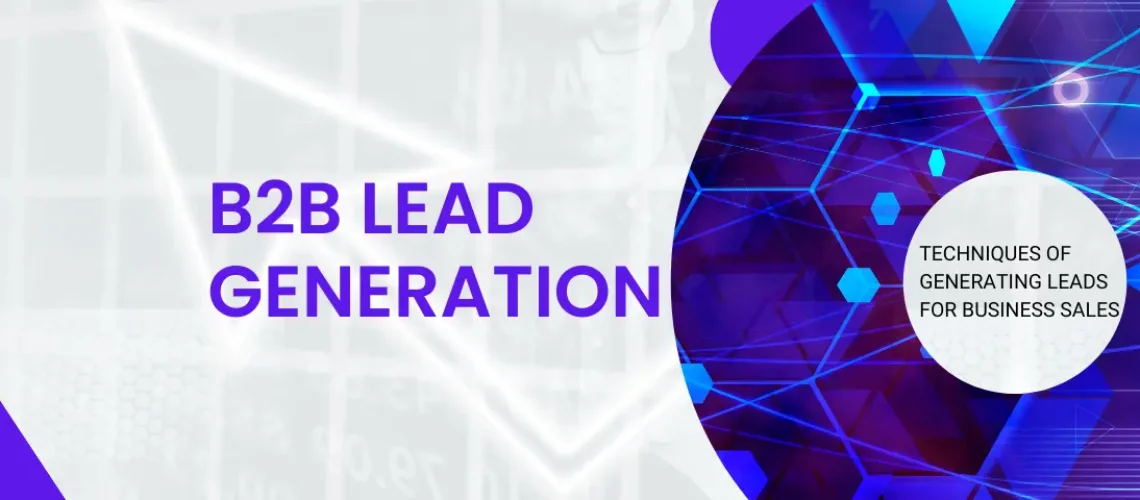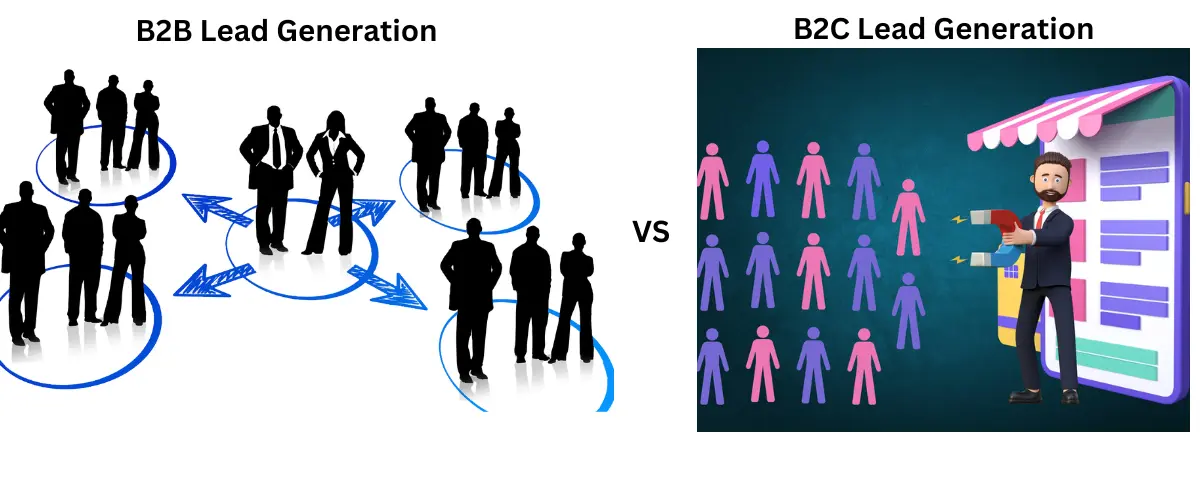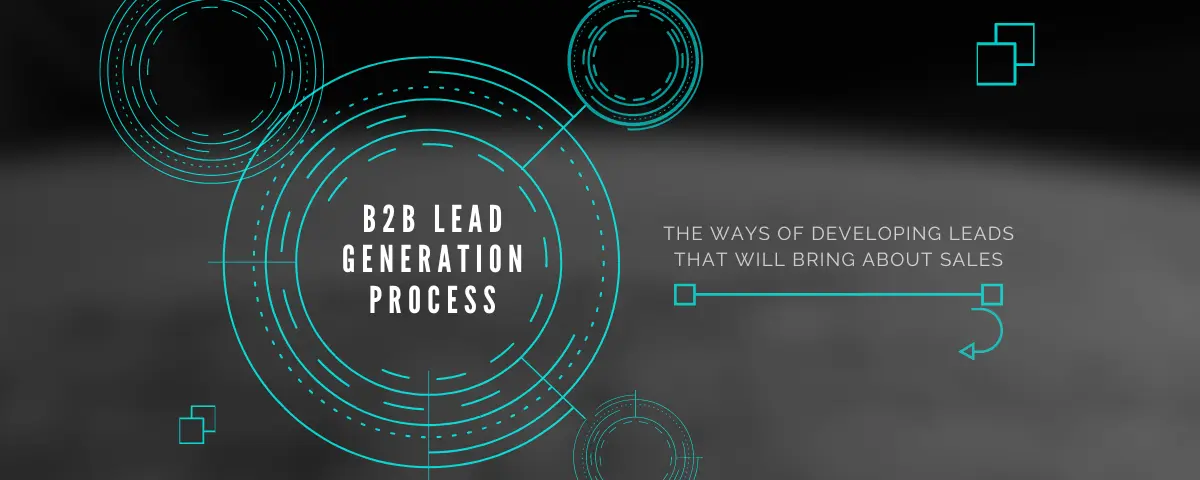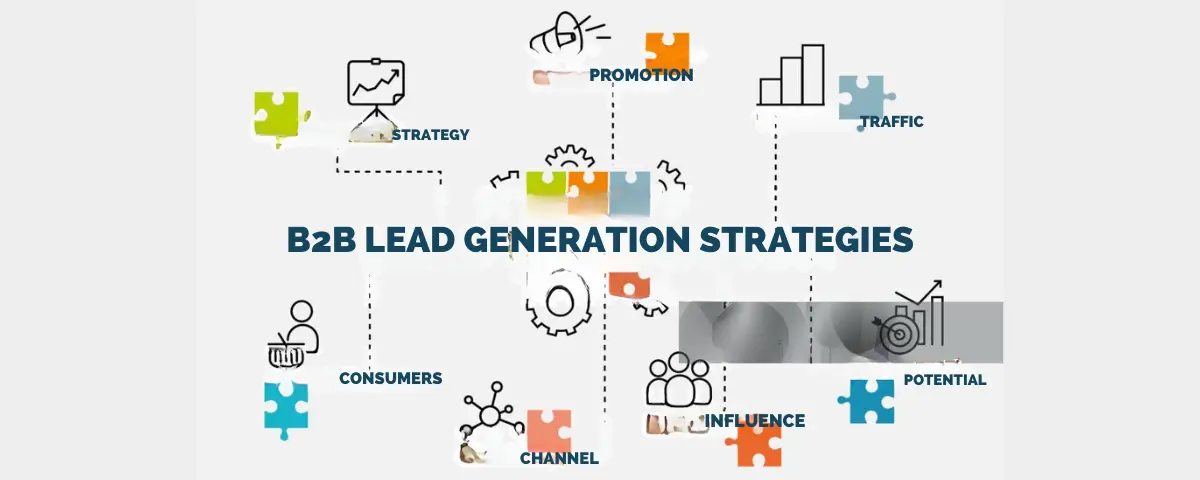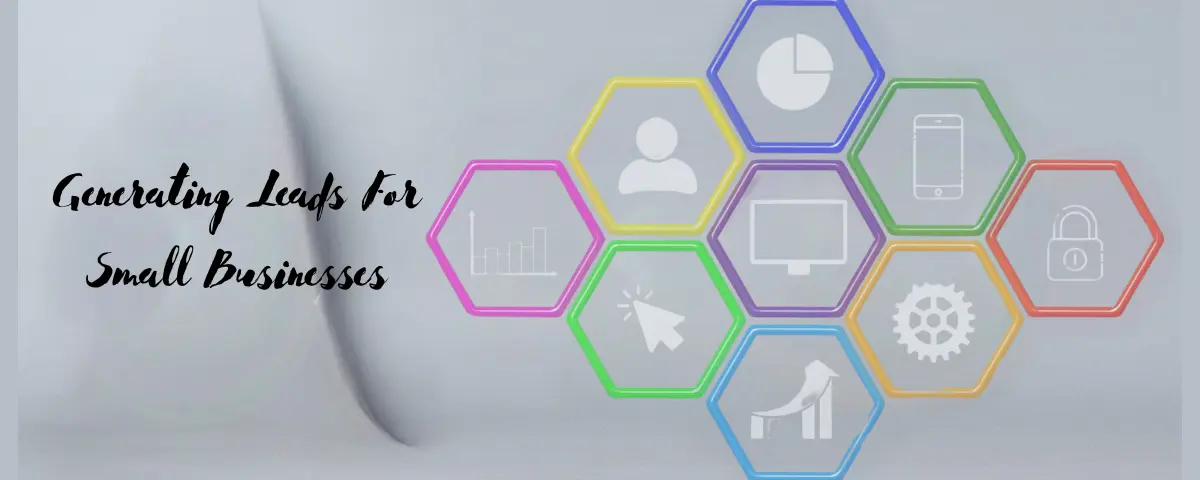If you’ve ever dabbled in B2B lead generation tactics, you know how difficult it can be to get the correct B2B sales leads. It’s not a job for the weak or those looking for a simple fix. Sometimes it feels like an uphill battle.
Lead acquisition is the lifeblood of every organization that wants to grow steadily. Nonetheless, one of the largest obstacles facing marketers and companies today is generating B2B leads.
It can take a lot of effort for your sales and marketing teams to develop strategies for generating B2B leads, but if you don’t optimize the process, you’re pretty well out of business.
You should know that obtaining B2B sales leads in particular might be challenging. However, there are multiple approaches of producing sales leads. However, your sales funnel will likely remain empty since they take a lot of time and work.
Generate high-quality leads and transform your sales pipeline by taking Digital Marketing Skill Institute’s course to learn more on lead generation.
Read on as we give a detailed explanation on the best strategies for generating B2B sales leads for your company in this post.
What is Lead Generation?
Lead generation is the process of looking for people who might be interested in your service and contacting them to continue the conversation and convert.
The purpose of lead generation is to generate consumer interest in a product or service to convert that interest into a sale. In online marketing, this usually entails using a web form to obtain a visitor’s contact details, or “lead.”
Since their items can cost thousands and website visitors are unlikely to purchase their goods or services straight from the company, lead generation is a crucial component of the sales funnel for many B2B businesses.
Before contacting eligible leads directly through salespeople, firms can use the new leads they gather to educate and nurture potential clients using email marketing.
What is B2B Lead Generation?
B2B lead generation is the process of finding the right customers for your product or service and persuading them to make a purchase.
Creating interest in your goods and services by using a variety of marketing techniques is the process of generating B2B leads, which will eventually lead to conversions and sales for your company.
Get 50% Discount to Master ALL Aspects of Digital Marketing That Can Earn You $2,500 - $5,000 a month (Even if you are a complete beginner!)
Our students that intentionally implement what they learn from our digital marketing course make back the entire course fee within a single month or more after completing our course because our course gives them many income generating options with unlimited earning potential with no age or location barrier. The best part is no technical skills are required.
An opportunity to change your lifestyle and make money working from anywhere in the world. The results our students get from our digital marketing course prove this could be applied to any market or country and that it is designed for any skill level and work background.
*By signing up, you agree to our privacy policy and terms of service.
To put it another way, B2B lead generation aids in the identification of your target market and encourages them to become customers by completing a transaction.
Why is B2B Lead Generation Important?
B2B lead generation has grown in importance in today’s internet-focused world since it drives customers to businesses’ websites, where those leads can be converted into sales.
Being stagnant in business is not a good thing. B2B lead generation is important for the expansion of your company. To avoid wasting your time advertising to people who wouldn’t be interested in your business in the first place, it is crucial to know who your target audience is.
Nonetheless, creating content or running ads for your target audience will help raise brand awareness, which boosts your ability to generate leads.
Also, B2B lead generation helps to:
- Attract top-notch quality leads
- Expand your business
- Improve the user experience
Another crucial component of lead creation is having a well-designed, interesting website that is optimized for mobile devices. This will influence how a potential customer perceives your business and how long they spend on your website.
The likelihood of potential customers becoming increasingly slimmer if the website is clumsy and slow. Therefore, without B2B lead generation, businesses would find it difficult to grow, and generate revenue.
Learn how B2B lead generation can help your business grow by taking our digital marketing course and learn the strategies you need to succeed
Different Between B2C Lead Generation and B2B Lead Generation
Gaining the greatest advantage over your competitors in obtaining quality leads who will ideally purchase the goods, or services you’re promoting requires an understanding of the main distinctions between B2C and B2B lead generation. let’s take a look at what makes B2C lead generation different from B2B lead generation.
1. The audience
In B2C, it is obvious your target group will be the real customer who purchases your goods or services. However, in a B2B setting, the decision-making team is probably composed of multiple individuals.
However, keep in mind that even though the “customer” is another business, actual people are hiding behind that business. Therefore, the target audience for your business-to-business (B2B) communications should be the decision-makers who choose whether or not to purchase your good or service, and not at a particular company.
The size of the target group is another difference between B2B and B2C lead generation. A B2C target group will normally be considerably larger than a B2B target group, which tends to be more constrained because of the specialized nature of the product or service and because the investment is typically larger.
2. Content
It is crucial to target the individual who is making the purchase decision when marketing in a business-to-business (B2B) setting. Before making a significant business choice, a B2B prospect expects a highly personalized approach, given their frequently substantial budget for the purchase.
Make connections between the decision maker’s challenges and significant Unique Selling Points (USPs) of your product or service. When it comes to helping your prospects comprehend what your product can do for them, gently guide them along your sales funnel, though content such as infographics, white papers, and case studies may be quite helpful.
However, when it comes to B2C lead generation, you have greater creative freedom. You can employ promos, original material, personalized messages, etc., depending on who your target audience is. B2C content is typically a lot shorter in length and communicates directly to the point.
3. Medium
Knowing which mediums or channels are better suited for B2B or B2C audiences, and which are equally effective for both, is important when deciding which to employ for content publication.
Even though social media is effective for B2B and B2C interactions, LinkedIn is still the favored platform for B2B interactions. Sharing informative content on LinkedIn, such as brief PDFs, presentations, or other content that might enlighten, add value, or address a query, is one of the major trends in lead creation.
All other social media platforms like Facebook, YouTube, Instagram, and so on, help generate B2C leads. Analyse your competitors and any channel you choose fits into your entire plan and advances your marketing objectives.
For both markets, email marketing, chatbots, and Google Ads are viable means of contact. Networking events, on the other hand, can be particularly effective in building relationships with B2B prospects.
4. Costing
While offering the best cost is always a good selling point, lead creation for B2B transactions is not as dependent on it as it is for B2C. B2B customers frequently have a set budget in mind when they look for a solution. Therefore, if you can persuade them of the benefits of your offering, cost is not going to be a determining factor.
Cost, however, is crucial for customers in the B2C category because they will be parting with their hard-earned money. Additionally, there are frequently several rival companies offering quite comparable goods and services in the B2C market.
5. Objectives
Both B2B and B2C lead generation should ultimately lead to a purchase. However, the two approaches to their primary objectives are typically very different.
B2B lead generation aims to establish a personal relationship based on trust with prospects so that their brand is the first one they think of when they are ready to purchase or invest in a good or service, while B2C lead generation tries to draw in price-conscious, emotion-driven consumers in a crowded market.
Type of B2B Leads?
Now that we have a fundamental understanding of what a B2B lead is, let’s examine the types in more detail.
1. Marketing qualified lead
A lead that satisfies specified requirements established by the sales and marketing departments is considered marketing-qualified. Higher conversion rates are indicated by MQLs. Customers who have shown enough interest, involvement, or suitability for your offering may be passed over to the sales team for additional qualification or may require more nurturing.
Reaching MQLs can be accomplished by using targeted email marketing, automated lead nurturing workflows, and customized follow-up that takes into account their actions and interests.
To cultivate their interest and preparedness for sales involvement, concentrate on offering insightful material, product demonstrations, or special offers.
However, you will eventually need to turn over the MQL at one point upon your assessment that the sales team is prepared.
2. Sales qualified lead
A lead that satisfies the strict requirements established by the sales team is considered sales-qualified and has a high probability of becoming a customer.
When MQLs have been thoroughly screened, show a clear need for your offering, have decision-making authority, and are actively evaluating a purchase within the sales cycle, they are more likely to be converted into SQLs.
Personalized and consultative sales discussions are an effective way to engage SQLs. You can address their pain issues, overcome their objections, and present them with strong reasons to buy.
Use value-driven proposals, relationship-building strategies, and prompt follow-up to close the deal and win them over as loyal and devoted customers.
3. Product Qualified Lead (PQL)
A product qualified lead (PQL) is a customer who has tried your product for free. They are already aware of what you provide and engage with the product, which makes them more inclined to turn into paying customers.
PQLs, as opposed to other leads like Marketing Qualified Leads (MQLs) or Sales Qualified Leads (SQLs), are found and qualified based on their interactions with the product rather than just marketing or sales efforts.
A current user is easier to convert to a paying customer since they already know how to use your product, what it delivers, and its worth. Because the user has experience, you don’t need to spend time introducing the product or interface to them.
4. service Qualified Lead (SQL)
Service qualified leads give value to customers, by assisting them in achieving more success when they use a company’s product or service with the support of further upgrades.
SQLs can also reduce customer acquisition costs (CAC), and boost customer lifetime value (LTV) by keeping customers for a while and encouraging them to purchase more items that provide more value as time passes.
B2B Lead Generation Process
B2B lead generation is the process of attracting potential buyers for a business-to-business (B2B) sales organization. It is a crucial step in the sales pipeline, as it helps to identify and engage with companies that are likely to become actual customers.
The process of B2B lead generation typically involves four:
1. Determine your target audience
Finding a prospect’s contact information is the first step in locating sales leads, but who is the individual prospect you want to reach out to?
First, develop a buyer persona as this is the perfect customer for your goods or services. Which sector do they work in? What is their position at work? Where do they look for media and information? And maybe most crucially, what issues or problems do they have that you can fix?
Try to distinguish the following to create the most useful buyer persona:
- Attributes of the company, such as its size, location, and organizational structure
- Job title and authority to make decisions
- Objectives
- Pain Points
- Challenges to conducting business
- Purchase requirements
Developing various personas is typically necessary, particularly if your products or services are targeted at distinct customer segments. You may start producing content that is specifically tailored for each of your target customers once you have identified them.
2. Implement lead generation methods
It’s time to work out how to locate the actual person, now that you have a clear picture of who your ideal customer is.
For B2B sales leads, there isn’t a single, universally applicable solution. Instead, you will have a plethora of options to select from when trying to attract that ideal customer
This can include creating valuable content, such as blog posts, e-books, or webinars, that addresses the needs of your target audience. Utilizing social media platforms and email marketing campaigns can also help to reach a wider audience and generate leads.
Additionally, attending industry events and networking with other professionals can provide opportunities to connect with potential customers and build relationships.
When you implement a variety of lead generation methods, B2B businesses can increase their chances of attracting high-quality leads and converting them into paying customers.
3. Reaching out to leads
Contacting potential leads to enhance engagement and foster relationships is an essential phase in the lead-generation process.
Once you have identified potential leads, the next step is reaching out to them. This can be done through various methods such as email, phone calls, or social media. It’s important to personalize your outreach and provide value to the lead, rather than just promoting your product or service.
Building a relationship with the lead and understanding their needs and pain points can help to establish trust and increase the chances of converting them into a customer. It’s also important to follow up with leads in a timely and consistent manner, as this can help to keep your business top of mind and increase the likelihood of a sale.
4. Nurture your leads
Nurturing leads is crucial since each one has the potential to become a sale if given enough focus.
Lead nurturing is the process of keeping potential customers interested in your business by providing them with content that meets their needs. This could be newsletters, emails, or other content that educates them about your products and services.
Monitoring customer engagement metrics like open rates, clicks, and conversions can provide you with important information about what content is most effective for each lead segment.
It also demonstrates to potential customers that you appreciate their time and effort when they consider your business as a possibility, and prompt responses to questions or requests can increase sales over time.
5. Close a deal or Close The Lead
Closing a deal or converting a lead into a customer is the final step in the B2B lead generation process. This involves finalizing the sale or agreement with the lead to turn them into a paying customer. To close a deal successfully, it’s important to address any final questions or concerns the lead may have, provide them with the necessary information, and guide them through the purchasing process. Building trust and demonstrating the value of your product or service can help seal the deal and ensure a successful conversion.
9 Proven B2B Lead Generation Strategies
1. Cold emailing
One very powerful marketing tactic is cold emailing, which is sending unsolicited emails to people or companies you don’t already know. Consider it the tech-enabled version of cold calling. But it’s less invasive than cold calling.
Depending on your outreach objective, cold emailing might have different purposes. But the fundamental objective remains the same: to start up a conversation.
Cold emailing is an essential part of a business’s outreach strategy in B2B marketing. Why? because email outreach is preferred over other types of contact by 80% of purchasers.
To create a successful cold email, you should:
- Personalize the message to show that you know the receiver.
- Identify yourself to distinguish your cold email from spam. Given that the receiver is unfamiliar with you, share anything about the brand.
- Make sure your email offers solutions to the recipient’s problems by delivering a value proposition to capture their interest.
- Keep the message brief and straightforward.
- Additionally, sending a distinctive email helps set your message out from others.
2. Content marketing
In recent years, it has been clear that the most efficient and well-liked way to generate leads is to create content tailored to your target audience and distribute it through appropriate channels of communication.
A company’s website is very crucial in content marketing. Individual pages, often known as landing pages offer users useful content and the details they need to know about a business and its products or services. For this reason, you ought to give your landing page optimization a lot of thought.
Landing pages should ideally be SEO optimized and adhere to the strictest usability guidelines. You should optimize it to maximize its visibility on search engine results pages (SERPs) to assist a potential consumer in solving their problem.
3. Event marketing
The main purposes of commercial events like trade fairs, congresses, and product presentations are lead generation and networking.
In addition to offering your business control over introducing new goods and services, hosting an event enables you to get quality leads from potential customers.
Here are a few explanations why organizing B2B events is a fantastic way to generate leads.
- Events give your brand a humanized IRL (In Real Life) Experience
- It assists in eligible lead qualification (with the right virtual or hybrid event platform)
- Promotes word-of-mouth marketing
- Offers countless opportunities to draw in participants
4. Pay-per-click (PPC) advertising
For over a decade, PPC has been an integral component of lead generation. These days, this strategy is used not only with Google Ads but also with Facebook Ads, LinkedIn Ads, and other platforms.
This involves placing ads on search engines and websites, and paying only when a user clicks on the ad. This method allows businesses to target specific keywords and demographics, ensuring that their ads are shown to relevant audiences.
PPC is quite quick as well. Teams can use it practically immediately and get benefits almost immediately. Another big advantage is that A/B testing makes it easy to see what is and isn’t working.
5. Influencer marketing
Influencer marketing is advantageous to more than just B2C enterprises. B2B-focused influencers can be found on LinkedIn, YouTube, and Twitter. The idea is to collaborate with micro-influencers who talk on themes relevant to your industry, or professionals who work or own enterprises in your field (but are not direct competitors).
Micro-influencers are good since their followings are more genuine. Celebrity influencers do not have the same results since many people regard them as live paid advertisements rather than people offering genuine advice.
6. Optimize your website
If you’ve read about any tools that can assist you in determining the kind of keywords your competitors are pursuing, you may have become intrigued.
There are two reasons why knowing that can be useful. Firstly, if your rivals are investing in keyword research, those terms probably generate some respectable leads. Therefore, if you haven’t already, it makes sense to pursue them too.
It’s also possible to determine which keywords your rivals aren’t pursuing by knowing which ones they are. If the keyword isn’t applicable, then there may be a valid explanation. On the other hand, those voids can occasionally hold fantastic opportunities. Finding the right balance between filling such gaps with paid PPC ads and content creation requires some research.
However, the payoff can be significant.
Read on the 4 Basic SEO Tips For Beginners To Rank On Google
7. Direct outreach
Sending follow-up emails is normal after sending a cold email, and this is for a good reason. Email campaigns that have four to seven follow-up emails have a response rate of 27%, but campaign that send out fewer emails have a response rate of just 9%.
Disrupting the routine email cycle is another crucial way to differentiate yourself from the competition. Following up with email marketing, sending direct, physical mail to your prospects leaves a lasting impression.
Send treats, gift cards, or personalized office supplies to your business audience to make them smile. These kinds of surprises, when combined with introductory notes or video chat invitations, create strong impressions that aid in generating leads.
8. Video Marketing
More people can now view videos thanks to advancements in the internet. As a result, using video content to generate leads can help you reach a wider audience.
Videos are the best medium for delivering your lead generation campaign since they generate more engagement than photographs and text. 84% of marketers claim that video helps them create leads due to its effectiveness.
To generate leads effectively with videos, keep them short and simple to ensure that your audience grasps the most important information at the beginning, maximizing engagement and making the video more impactful.
9. Multi-channel marketing
When generating B2B leads, a multi-channel strategy is crucial since it enables companies to effectively communicate with their target audience across a variety of digital channels. Businesses may improve their exposure, develop a recognizable brand, and draw in leads from a variety of sources by utilizing various channels.
The capacity to reach potential customers across a variety of platforms and mediums is one of the main advantages of a multi-channel approach in B2B lead generation. In other words, companies can communicate with their target market via email marketing, social media, content marketing, search engine optimization (SEO), and other methods.
Take our digital marketing course and learn how to maximize your lead generation efforts to help you attract and convert more leads.
How To Generate B2B Leads For Your Small Business?
1. Observe and Provide Assistance on Social Media
Social media is a vast dialogue platform. Your ideal customers are currently debating solutions similar to yours and seeking advice from like-minded individuals over their available possibilities. You have the ideal opportunity to connect with someone during these conversations.
Take advantage of these conversations to join in and establish a relationship. Offer your services if it makes sense, but don’t feel obligated to do so to every person you encounter on social media. You don’t want to appear overly pleading.
2. Be Innovative and Try New Things
You’ll need to come up with inventive strategies to create leads if you don’t have the funds for marketing and advertising initiatives.
To bring your company (and yourself) in front of your desired customers, you’ll need to put in some elbow grease and come up with creative ideas.
You may put yourself in a position to impress and attract the attention of your target customers by using techniques like cold emailing potential customers, keeping an eye on social media, and creating content to position your business as an authority in your sector.
3. Participate in social events for networking
Few things are more beneficial for B2B companies than going to a networking event and building contacts with potential customers in person. Even if business owners themselves do not use your services, they could be eager to promote you to their friends, thus attending networking events or organising online events can be beneficial for referral marketing as well.
4. Enhance Your Online Presence on LinkedIn
LinkedIn is one of the most relevant internet channels for B2B organizations to generate leads for sales.
LinkedIn offers a vast network of businesses and professionals with whom you may connect and expand your network. On LinkedIn, the same discussions that you ought to participate in on other social media platforms are far more common.
More than that, though, LinkedIn offers B2B companies access to a network of quality prospects with whom they can cultivate real connections and produce leads for sales.
By adding real value to your LinkedIn profile and building a credible online presence, you may build contacts that will help you and keep your waiting list full.
Best B2B Lead Generation Tools and Platforms
To get the most out of your marketing campaigns, you must use the best B2B lead generation tools. Let’s now examine the top seven B2B lead generation tools available that are unique in the market:
1. Sales Navigator on LinkedIn
This is an effective B2B lead creation solution that connects you with decision-makers and possible prospects by utilizing LinkedIn’s extensive professional network. It provides real-time analytics, lead recommendations, and sophisticated search filters. By doing this, you’ll be able to recognize and interact with the right prospects at the right moment.
Features and Benefits
- Sales Navigator offers sophisticated targeting choices and search filters according to industry, job title, firm size, and geography.
- Even if you’re not connected, you may reach out to prospects directly with its InMail messaging function and monitor the success of your outreach.
- You can stay informed about pertinent updates and activity from your leads with Sales Navigator’s real-time insights and alerts. You can remain informed and involved in the sales process as a result.
2. HubSpot
A comprehensive suite of tools and capabilities for lead generation, email marketing, social media management, content management, analytics, and customer relationship management (CRM) are available from HubSpot, an all-in-one marketing automation platform. Businesses of all sizes favor it because of its extensive feature set and user-friendly design.
Features and Benefits include:
- HubSpot offers an array of inbound marketing solutions. Lead scoring, email campaigns, landing pages, lead capture forms, and workflow automation are a few of them.
- You can monitor and handle leads through the sales process with its CRM system. This includes the first interaction, conversion, and beyond.
- The analytics and reporting capabilities offered by HubSpot offer insightful data on the effectiveness of lead creation. You’ll be able to maximize your marketing efforts and achieve greater outcomes by doing this.
Conclusion
The goal of lead generation is to draw in new leads in order to boost revenue in the future. It’s critical to know the appropriate approach if you want to produce more B2B leads. Your lead generation process in B2B starts with lead discovery. After that, before completing the transaction, your marketers will get in touch with and qualify these leads.
Using efficient lead-generating techniques during the process is crucial to maximizing return on investment (ROI), enhancing the efficiency of the sales process, they also aid in producing leads with high intent.
To get practical knowledge about how to successfully generate leads either as a business owner or a marketer for a business, you can enrol in some or all of the marketing courses listed to get started
READ ALSO: Lead Generation | A Complete Beginner Guide To Generating Leads
FAQs
Who needs B2B leads?
Marketing agencies, advertising agencies, and public relations organizations that offer services to other businesses depend on B2B leads.
On a basic level, B2B lead generation is important for the organization and for the sales and marketing departments. It is essential to the sales funnel since without it, there wouldn’t be any leads, conversions, customers, or further business.
Why does your business need an effective B2B lead generation strategy?
Business growth is greatly aided by the generation of B2B leads. Businesses can enhance sales and revenue, leading to higher profitability, by producing high-quality leads.
Marketing efforts can be tailored to the requirements and tastes of prospective customers. This customization increases the chance of conversion with the proper customers, .
Furthermore, cultivating repeat business and enhancing brand loyalty are two other benefits of establishing solid customer relationships through lead-generation strategies. In the end, firms can enjoy substantial growth and expansion potential by constantly putting B2B lead generation strategies into practice.
What are 4 efficient lead generation strategies for B2B marketers?
- Define your ‘ideal customer’ profile.
- Optimize your website to attract and nurture leads.
- Make sure your website is search engine optimized.
- Use email marketing to capture and nurture leads.
How to increase sales B2B?
- Be approachable, but keep in mind that you’re not attempting to become your potential customer’s best friend.
- Sell yourself.
- Make recommendations.
- Be an authority on everything related to your product….
- Make more of an effort to target leads.
More Resources
How To Run a Successful Lead Generation Campaign online
How To Use Video Marketing To Grow your Business
Lead Generation Strategy: Get leads With These 7 Content Strategies
Reason why conversion rate optimization is important for your business

